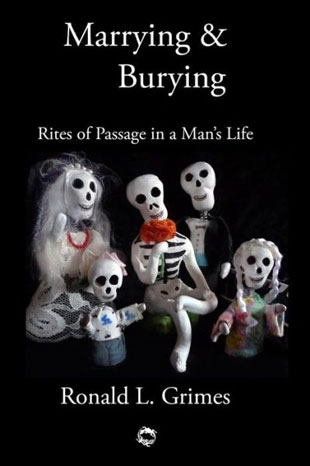"Ordinariness and routines are givens of domestic life. We get up, eat breakfast, brush our teeth, do some work, down a quick lunch, drift across the midafternoon, slump into supper, imbibe some TV, and sack in for the night show (the one that circles and cycles in our heads while we sleep). Then it starts over again. What does it all amount to? The routine can become so deadening and the body and mind so habituated that instead of fleeing breaks, we court them; we need relief. The daily round and the lifecycle not only suffer breaks; they also require them. Ritual interludes offer a break from the grind. There are the breaks that punctuate lives uninvited, and there are those that we court. For those that we invite we build ceremonial bridges: weddings, funerals, initiations, birthdays. A rite is a rope bridge of knotted symbols strung across an abyss. We make our crossings hoping the chasm will echo our festive sounds for a moment, as the bridge begins to sway from the rhythms of the dance.
"Rites of passage are simulated markers invented to make breaks in lives. Rites of passage are culturally stylized crises that reinforce a society's belief that the phases of a cycle are real and natural. By providing orientation points, they break up a life so its drudgery can be endured, maybe even transformed. Rites of passage both nourish and consume those who enact them. A rite is not only the bridge over which folks pass; it is also the troll beneath, its stomach growling to devour all who dare cross. Rites bridge; rites threaten to consume. We don't get to cross without paying the troll. There is good reason to weep at funerals and weddings. Having passed through a phase, we can't return."
